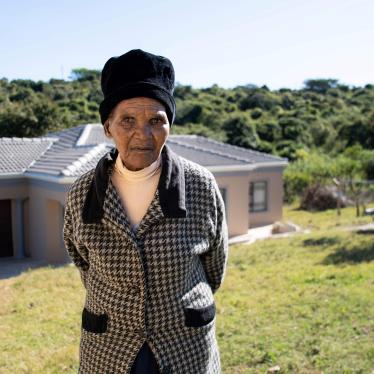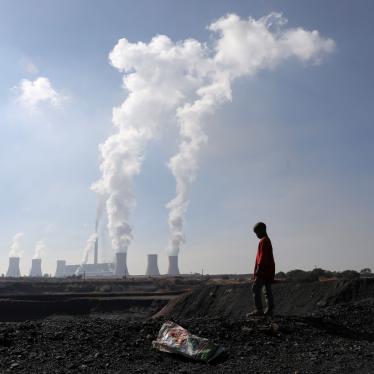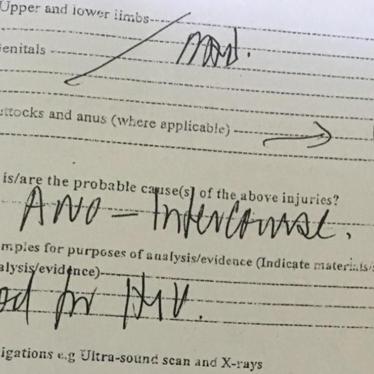The Zimbabwe government’s plans to evict 13,840 Indigenous Shanganipeople from their communal land in Chilonga, Chiredzi district, southeastern Zimbabwe is problematic for many reasons, not least for its failure to uphold human rights.
On 26 February, the Local Government, Urban and Rural development Minister, July Moyo, published a legal notice ordering thousands of people on 12,940 hectares of Chilonga communal land in Chiredzi to leave immediately unless they acquire fresh rights of use or occupation to that land. The legal notice said the land was being set aside for lucerne grass production – farming grass for stockfeed.
This is not the first forced relocation of communities in the Chiredzi district. Human Rights watch research established that between 2012 and 2014 20, 000 people were displaced from the Tokwe-Murkosi dam basin and relocated to Chingwizi in a chaotic process fraught with human rights problems.
The government failed to adequately consult people, protect their rights, or honor promises regarding compensation and resettlement. Thousands of people forcibly moved to Chingwizi camp were left destitute, relying on food from international aid agencies. More than six years later, without adequate compensation or suitable alternative land from government, the stranded families still live in tents, unable to rebuild their lives and livelihoods.
But Zimbabwe authorities seemed not to have learned from the mistakes of past, or to consider the insensitivity of forcibly evicting thousands of people amid the current global pandemic. The Information Ministry’s permanent secretary, Nick Mangwana, on 4 March, shared a video message on Twitter in which the legislator for Chiredzi West, Farai Musikavanhu claimed that the government had consulted the Shangani people of Chilonga and that they supported the lucerne production project.
Musikavanhu could not have been speaking for the affected community because he is not the MP for the Chilonga area. Several Chilonga leaders told me over the phone that they are strongly opposed to the lucerne project by a private company, and the ensuing eviction, and then the plans were announced without their consent.
Moreover, the government did not provide reasonable notice for relocation, plans to pay compensation, and provision of alternative land with infrastructure like schools, clinics, hospitals, and roads. A Chilonga community leader said: “We refuse to be forced to leave our homes without any reasonable notice, since the law says we must leave immediately, and without any compensation.”
A staff member for a local civil society group working with the Chilonga community, the Masvingo Centre for Research Advocacy and Development (MACRAD Trust), said that the community leaders had rejected the lucerne farming project plan when it was presented to them on 30 April, 2020, during a meeting between Moyo and the traditional chiefs, local authorities, the headman, and a few other delegates.
The MACRAD Trust and members of the Chilonga community, through their lawyers, the Zimbabwe Environmental Law Association (ZELA), on March 5, filed two urgent High Court applications in Masvingo, to have the legal notice, Statutory Instrument 50 of 2021, declared unconstitutional and invalid. The filings say the order infringes on the rights not be subjected to arbitrary eviction, the right to fair administrative justice, and the right to dignity. The two cases are yet to be finalised in court.
It is not disputed that under section 10 of the Communal Land Act, the minister responsible for local government, urban and rural development can set aside communal land for any purpose, after consultation with the local Rural District Council. The Act permits the minister to order evictions under certain limited circumstances, including after providing reasonable notice, and in compliance with the country’s constitution, which in section 74 prohibits eviction in the absence of a court order. This means that in the absence of a court order, the Chilonga eviction would be unlawful.
Forced displacement without compensation, termed as forced evictions, violates international human rights law. The African Union Convention for the Protection and Assistance of Internally Displaced Persons in Africa, which Zimbabwe ratified, requires in article 3(1)(a) that states parties “refrain from, prohibit and prevent arbitrary displacement of populations.” That Zimbabwe signed and ratified the African Union Convention for the protection and assistance of internally displaced people should stop the ZANU-PF government from pushing the people of Chilonga into arbitrary relocation.
The African Commission on Human and Peoples’ Rights has stated that the right to property includes the recognition of communities’ traditional and collective ownership of land and their protection from forced evictions.
In General Comment 7, the UN Committee on Economic, Cultural, and Social Rights defines forced evictions as “the permanent or temporary removal against their will of individuals, families and/or communities from the homes and/or land which they occupy, without the provision of, and access to, appropriate forms of legal or other protection.”
The committee also urged governments to adequately compensate victims and ensure that “prior to any evictions, particularly those involving large groups, all feasible alternatives are explored in consultation with affected people, with a view to avoiding, or at least minimizing, the use of force.”
The AU and members of the Southern African Development Community (SADC), including South Africa, should insist that Zimbabwe’s political leaders discharge their primary duty and responsibility to respect and protect the rights of the Chilonga community in accordance with national and international law. Unfortunately, SADC no longer has a regional mechanism for justice and remedial action, thanks to Zimbabwe, which in 2012 spearheaded stripping the SADC Tribunal of its human rights mandate.
President Emmerson Mnangagwa’s promises to respect human rights ring hollow in the face of this wanton disregard for the humanity and dignity of the Chilonga people. His government should urgently take the necessary steps to provide them effective protection by respecting their land and property rights and peacefully engaging with them on its plans. This is the time to do the right thing and treat the people of Chilonga with the respect and dignity they deserve.









